-
 Bitcoin
Bitcoin $114200
0.00% -
 Ethereum
Ethereum $3637
0.56% -
 XRP
XRP $2.950
-2.01% -
 Tether USDt
Tether USDt $0.9999
0.02% -
 BNB
BNB $761.0
0.55% -
 Solana
Solana $164.1
-1.38% -
 USDC
USDC $0.9999
0.02% -
 TRON
TRON $0.3332
0.36% -
 Dogecoin
Dogecoin $0.2012
-0.52% -
 Cardano
Cardano $0.7261
-1.41% -
 Hyperliquid
Hyperliquid $37.62
-2.13% -
 Stellar
Stellar $0.3930
-2.65% -
 Sui
Sui $3.441
-0.16% -
 Bitcoin Cash
Bitcoin Cash $563.8
0.70% -
 Chainlink
Chainlink $16.50
0.09% -
 Hedera
Hedera $0.2424
-0.14% -
 Ethena USDe
Ethena USDe $1.001
0.01% -
 Avalanche
Avalanche $22.20
0.00% -
 Litecoin
Litecoin $118.0
-2.48% -
 UNUS SED LEO
UNUS SED LEO $8.991
0.12% -
 Toncoin
Toncoin $3.195
-3.87% -
 Shiba Inu
Shiba Inu $0.00001217
0.12% -
 Uniswap
Uniswap $9.674
-0.21% -
 Polkadot
Polkadot $3.633
1.00% -
 Monero
Monero $295.3
-0.82% -
 Dai
Dai $0.9999
0.00% -
 Bitget Token
Bitget Token $4.321
-0.41% -
 Cronos
Cronos $0.1392
0.73% -
 Pepe
Pepe $0.00001027
-0.89% -
 Aave
Aave $258.5
0.32%
how to locate my binance address
Binance uses unique cryptocurrency addresses; your Bitcoin address differs from your Ethereum address. Always verify the address before sending funds to avoid irreversible loss.
Mar 22, 2025 at 04:00 pm
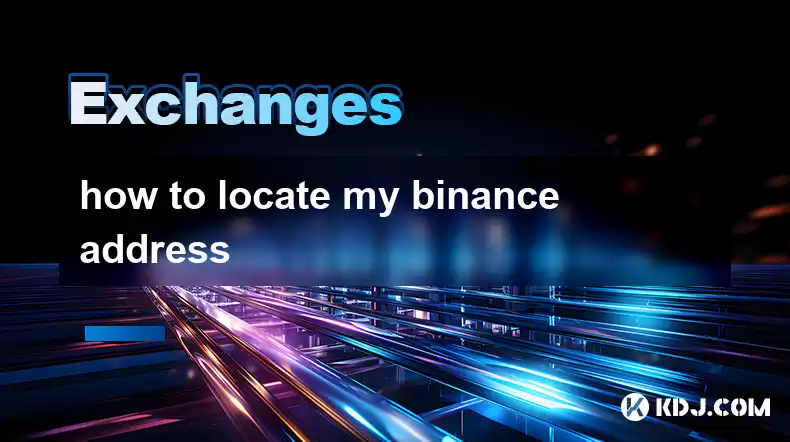
Key Points:
- Binance doesn't provide a single, universal "Binance address." Your address varies depending on the cryptocurrency you're sending or receiving.
- Each cryptocurrency has its own independent blockchain and therefore its own unique address format.
- Finding your Binance address involves navigating the Binance platform and selecting the specific cryptocurrency you need the address for.
- Security is paramount. Always double-check the address before sending any cryptocurrency.
How to Locate Your Binance Address
The question "How to locate my Binance address" is inherently ambiguous. Binance doesn't have one address. Instead, it manages addresses for many different cryptocurrencies. Each digital asset, like Bitcoin (BTC), Ethereum (ETH), or Binance Coin (BNB), operates on its own blockchain and requires a unique address for transactions. Therefore, finding your Binance address necessitates knowing the specific cryptocurrency involved.
To find your address, you must first log into your Binance account. Navigation varies slightly depending on whether you're using the website or the mobile app, but the core process remains consistent.
Finding Your Deposit Address on the Binance Website:
- Navigate to the "Wallet" section: Usually found in the top navigation bar.
- Select "Fiat and Spot": This is where you'll manage your spot trading balances.
- Find "Deposit": This option is typically clearly visible.
- Choose the cryptocurrency: Select the specific digital asset (e.g., BTC, ETH, BNB) you wish to deposit.
- Your deposit address will be displayed: Binance will show you the unique address for that specific cryptocurrency. Carefully copy this address.
Finding Your Deposit Address on the Binance Mobile App:
The mobile app process is similar:
- Open the Binance app and log in.
- Go to "Wallet". This is usually a prominent icon at the bottom of the screen.
- Tap "Spot Wallet".
- Select "Deposit".
- Choose your cryptocurrency. Select the coin you want to deposit.
- Your deposit address will be displayed. Make sure to copy it accurately.
Important Security Considerations:
Never share your Binance deposit address with anyone unless you are absolutely certain of their trustworthiness. Scammers frequently attempt to obtain these addresses to steal funds. Always independently verify the address provided to you by a sender, especially if you're receiving a large sum. Even a single misplaced character can result in the loss of your funds. Binance will never ask you for your private keys or seed phrase.
Understanding Different Address Formats:
Different cryptocurrencies have vastly different address formats. A Bitcoin address looks nothing like an Ethereum address. Trying to use the wrong address for a specific cryptocurrency will result in an irreversible loss of funds. Always ensure the address you are using matches the cryptocurrency you intend to send or receive. If you are unsure, double-check with the recipient or consult the cryptocurrency's official documentation.
What to Do if You Can't Find Your Address:
If you are having trouble locating your deposit address, consider these steps:
- Check your internet connection: Ensure you have a stable internet connection.
- Clear your browser cache and cookies: Sometimes, cached data can interfere with website functionality.
- Try a different browser or device: This helps rule out browser-specific issues.
- Contact Binance support: If all else fails, reach out to Binance's customer support for assistance. Be prepared to provide relevant information to verify your account. Never share your private keys with support personnel.
Common Questions:
Q: Is my Binance address the same for all cryptocurrencies?
A: No, each cryptocurrency has its own unique address on Binance. You need a different address for each coin.
Q: What should I do if I sent funds to the wrong address?
A: Unfortunately, cryptocurrency transactions are generally irreversible. Contact the recipient immediately and explain the situation. If the recipient is unresponsive or unwilling to cooperate, recovering your funds is extremely difficult, and often impossible.
Q: How can I verify the authenticity of a Binance address?
A: There isn't a centralized verification system for all Binance addresses. The best way to verify is to generate the address yourself through the process described above. Always be cautious of addresses you receive from external sources.
Q: Can I change my Binance address?
A: You don't "change" your Binance address. Each deposit generates a new, unique address for that specific transaction. However, the address will always be tied to your Binance account.
Q: What if I lost access to my Binance account?
A: Recovering access to your Binance account depends on the security measures you've set up. If you have two-factor authentication (2FA) enabled, the recovery process might be more complex. Consult Binance's support documentation for guidance on account recovery. Never share your private keys with anyone.
Disclaimer:info@kdj.com
The information provided is not trading advice. kdj.com does not assume any responsibility for any investments made based on the information provided in this article. Cryptocurrencies are highly volatile and it is highly recommended that you invest with caution after thorough research!
If you believe that the content used on this website infringes your copyright, please contact us immediately (info@kdj.com) and we will delete it promptly.
- Binance, CZ, and the FTX Fallout: The $1.8 Billion Question
- 2025-08-06 18:30:12
- Brendan Rodgers, Celtic, and the Greg Taylor Role: A Tactical Conundrum
- 2025-08-06 18:50:12
- Coinbase Stock, Investment, and Earnings: Navigating Crypto's Tides
- 2025-08-06 18:55:54
- DALPY Coin: Investor Buzz Swirls Around Upcoming 'Game-Changing' Features
- 2025-08-06 18:30:12
- Fast-Moving Cryptos: Could Pudgy Penguins Deliver High Gains by 2025?
- 2025-08-06 16:30:11
- Crypto Gaming Tokens: August 2025 Investment Opportunities
- 2025-08-06 16:50:12
Related knowledge
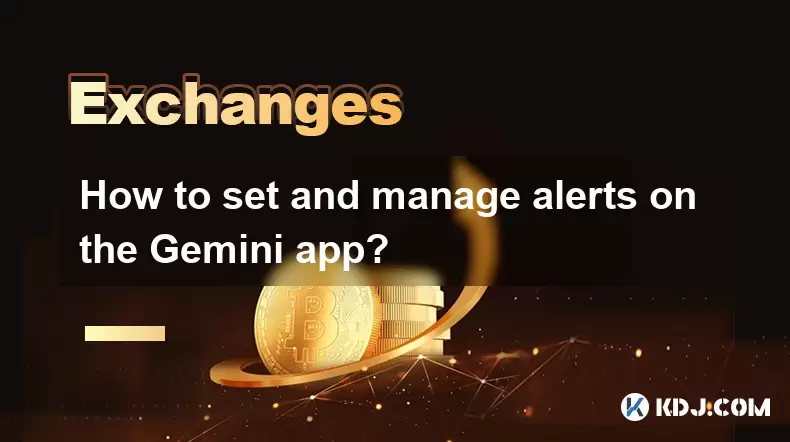
How to set and manage alerts on the Gemini app?
Aug 03,2025 at 11:00am
Understanding the Gemini App Alert SystemThe Gemini app offers users a powerful way to stay informed about their cryptocurrency holdings, price moveme...
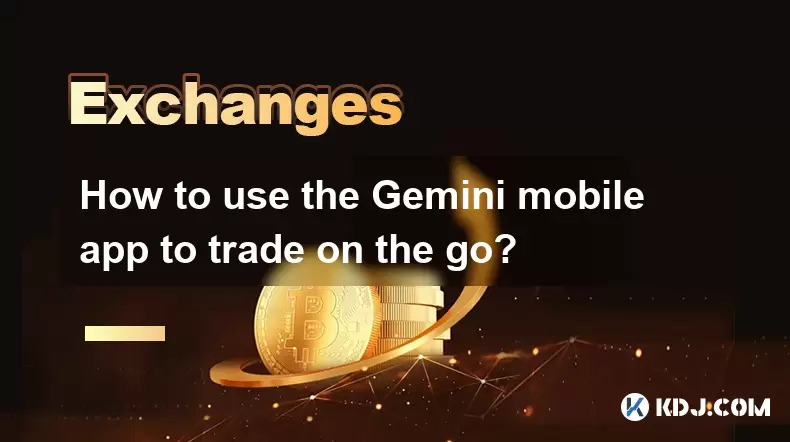
How to use the Gemini mobile app to trade on the go?
Aug 04,2025 at 09:14am
Setting Up the Gemini Mobile AppTo begin trading on the go using the Gemini mobile app, the first step is installing the application on your smartphon...
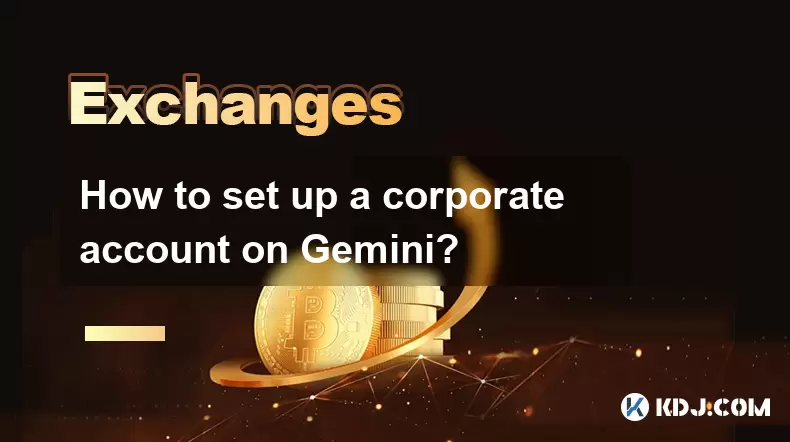
How to set up a corporate account on Gemini?
Aug 05,2025 at 03:29pm
Understanding Gemini Corporate AccountsGemini is a regulated cryptocurrency exchange platform that supports both individual and corporate account crea...
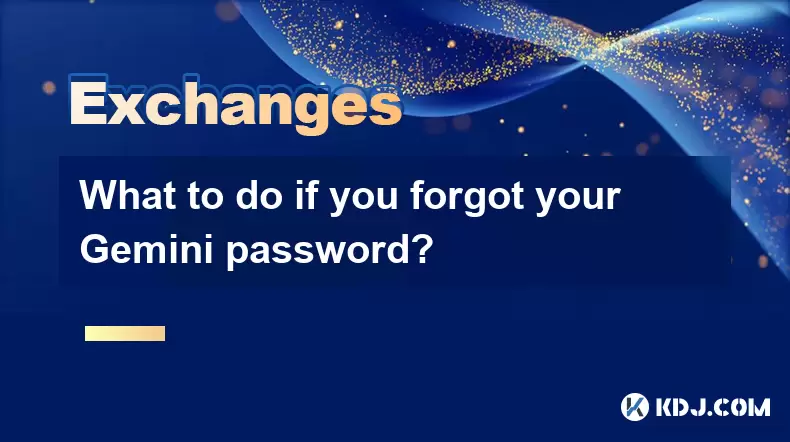
What to do if you forgot your Gemini password?
Aug 04,2025 at 03:42am
Understanding the Role of Passwords in Gemini AccountsWhen using Gemini, a regulated cryptocurrency exchange platform, your password serves as one of ...
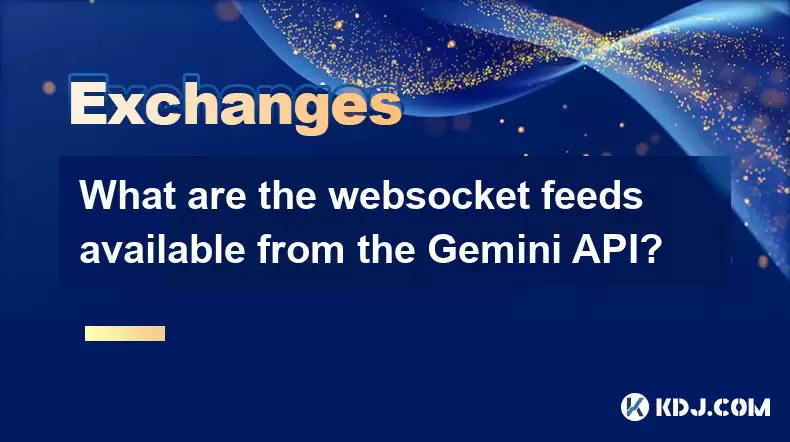
What are the websocket feeds available from the Gemini API?
Aug 03,2025 at 07:43pm
Overview of Gemini WebSocket FeedsThe Gemini API provides real-time market data through its WebSocket feeds, enabling developers and traders to receiv...
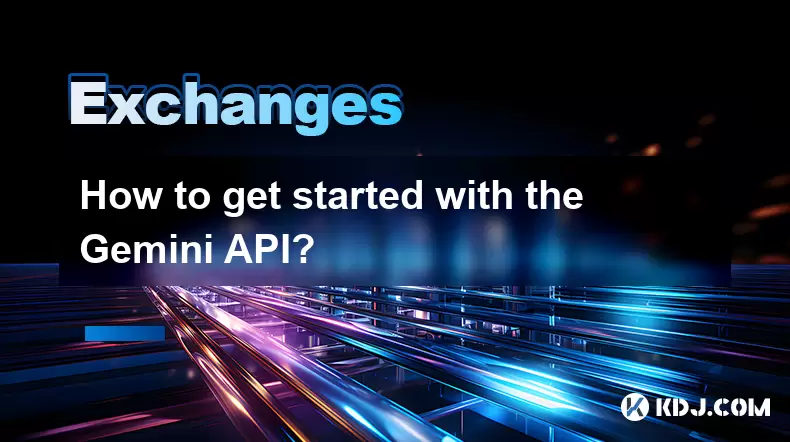
How to get started with the Gemini API?
Aug 05,2025 at 12:35pm
Understanding the Gemini API and Its PurposeThe Gemini API is a powerful interface provided by the cryptocurrency exchange Gemini, enabling developers...

How to set and manage alerts on the Gemini app?
Aug 03,2025 at 11:00am
Understanding the Gemini App Alert SystemThe Gemini app offers users a powerful way to stay informed about their cryptocurrency holdings, price moveme...

How to use the Gemini mobile app to trade on the go?
Aug 04,2025 at 09:14am
Setting Up the Gemini Mobile AppTo begin trading on the go using the Gemini mobile app, the first step is installing the application on your smartphon...

How to set up a corporate account on Gemini?
Aug 05,2025 at 03:29pm
Understanding Gemini Corporate AccountsGemini is a regulated cryptocurrency exchange platform that supports both individual and corporate account crea...

What to do if you forgot your Gemini password?
Aug 04,2025 at 03:42am
Understanding the Role of Passwords in Gemini AccountsWhen using Gemini, a regulated cryptocurrency exchange platform, your password serves as one of ...

What are the websocket feeds available from the Gemini API?
Aug 03,2025 at 07:43pm
Overview of Gemini WebSocket FeedsThe Gemini API provides real-time market data through its WebSocket feeds, enabling developers and traders to receiv...

How to get started with the Gemini API?
Aug 05,2025 at 12:35pm
Understanding the Gemini API and Its PurposeThe Gemini API is a powerful interface provided by the cryptocurrency exchange Gemini, enabling developers...
See all articles

























































































